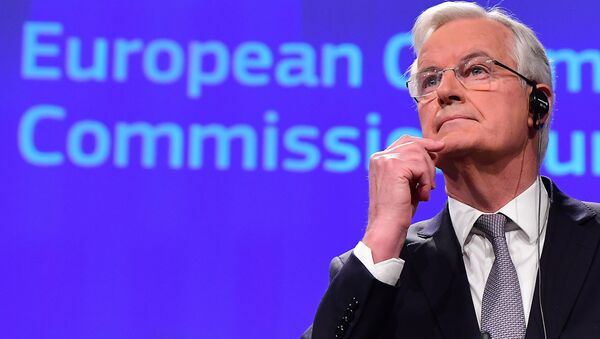Barnier — who was foreign affairs minister of France, a member of the European Parliament and a European Commissioner — said: "Brexit will have significant human, economic, financial, legal and political consequences."
"But the consequences of a no deal situation would be even more significant — for everyone. More than four million citizens — UK citizens in the EU and EU citizens in the UK — confronted with extreme uncertainty concerning their rights and their future; supply problems in the United Kingdom, disrupting value chains," he said.
"The reintroduction of burdensome customs checks, inevitably slowing down trade and lengthening lorry queues in Dover; serious disruption in air traffic to and from the United Kingdom," he told the plenary session of the European Committee of the Regions.
The sooner we agree on principles of orderly withdrawal, the more time for trade discussions afterwards. #corplenary #brexit
— Michel Barnier (@MichelBarnier) 22 March 2017
Barnier pointed out that the talks — which will be formally triggered when UK Prime Minister Theresa May formally writes tot eh President of the European Commission, Donald Tusk, March 29 invoking Article 50 of the Treaty of Lisbon — will begin with Britain's exit from the EU, before discussing its new relationship with the remaining 27 member states.
'Citizens First'
He said one of the central goals would be quickly to establish the rights of EU workers in Britain and of UK citizens living and working in the EU.
"This uncertainty is first and foremost that of the four and a half million citizens: the Polish students who have access to British universities under the same conditions as British students; the British pensioners who are resident in Spain and who benefit from healthcare under the same conditions as Spanish pensioners."
Guaranteeing rights of European citizens will be absolute priority from start of negotiations. Our watchword: citizens first! #brexit
— Michel Barnier (@MichelBarnier) 22 March 2017
"The Romanian nurses and doctors who contribute to the quality of healthcare in the United Kingdom; or the engineers from Italy, Germany or elsewhere, who chose to work in the United Kingdom, just like the thousands of British people who have made the same choice to work in Berlin, Rome or Vienna.
"We hear their doubts. We understand their worry, and we must act effectively in response. Guaranteeing their rights as European citizens, in the long term, will be our absolute priority from the very start of the negotiations. Our watchword will be: 'Citizens first!'," he said.




